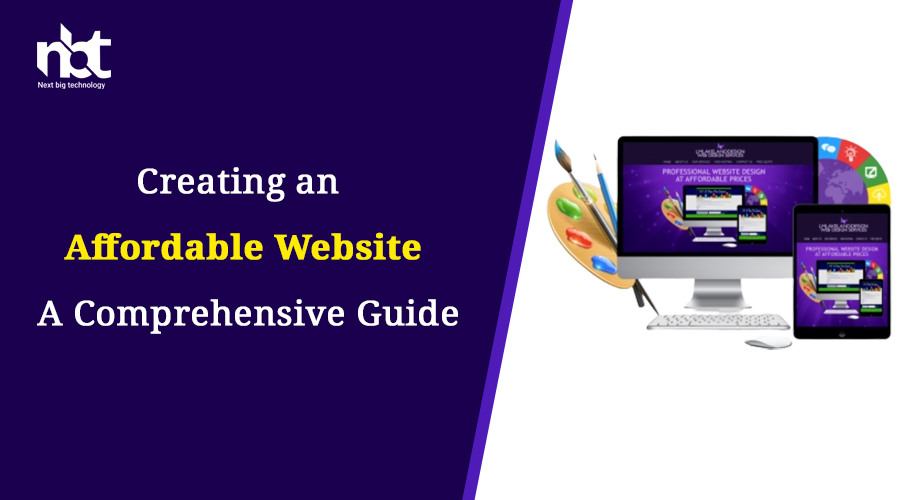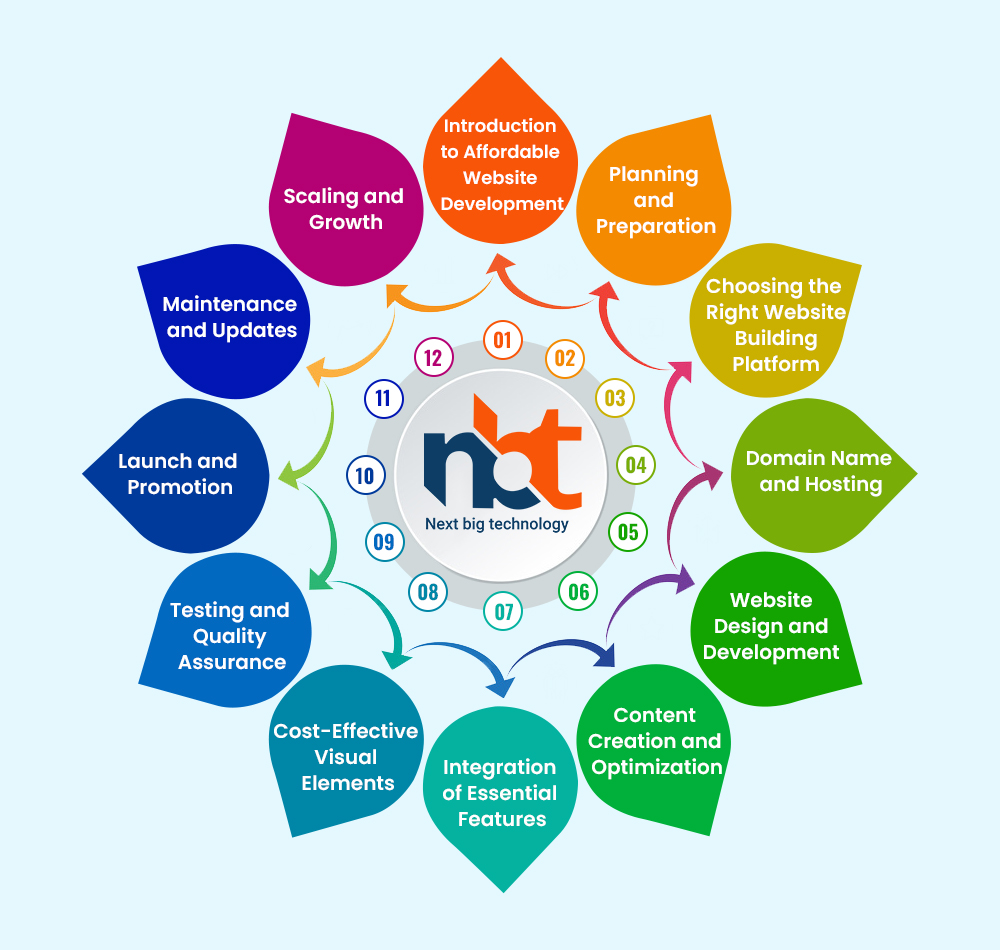In today’s digital era, having a website is crucial for businesses, organizations, and individuals to establish an online presence and connect with a global audience. However, the perception of website development being expensive often deters many from pursuing this essential asset. In this comprehensive guide, we’ll explore practical strategies and steps to create an affordable website without compromising on quality.
Table of Contents
Introduction to Affordable Website Development
- Understanding the Importance of a Website for Online Presence
- Dispelling Myths About Expensive Website Development
Planning and Preparation
Define Your Goals and Purpose
- Clarifying the Purpose of Your Website (e.g., Portfolio, Blog, Business)
- Setting Clear Objectives for Your Online Presence
Research and Inspiration
- Exploring Websites in Your Niche for Ideas
- Gathering Inspiration for Design and Functionality
Budget Allocation
- Setting a Realistic Budget for Your Website Project
- Identifying Essential Costs and Potential Savings
Choosing the Right Website Building Platform
Content Management Systems (CMS)
- Exploring User-Friendly and Affordable CMS Options (e.g., WordPress, Joomla, Drupal)
- Evaluating the Pros and Cons of Each Platform
Website Builders
- Considering Drag-and-Drop Website Builders (e.g., Wix, Weebly, Squarespace)
- Assessing Their Ease of Use and Cost-Effectiveness
Domain Name and Hosting
Domain Name Registration
- Selecting a Memorable and Relevant Domain Name
- Choosing a Domain Extension (e.g., .com, .net, .org)
Affordable Hosting Options
- Exploring Budget-Friendly Hosting Providers (e.g., Bluehost, HostGator, SiteGround)
- Comparing Hosting Plans and Features
Website Design and Development
Pre-Made Templates and Themes
- Using Ready-Made Templates Provided by CMS and Website Builders
- Customizing Templates to Reflect Your Brand Identity
Customization and Branding
- Incorporating Your Logo, Colors, and Visual Elements
- Creating a Consistent and Professional Look
Simplicity in Design
- Embracing Minimalism to Enhance User Experience
- Focusing on Clarity, Readability, and Navigation
Content Creation and Optimization
Compelling Content Creation
- Writing Engaging and Informative Website Copy
- Showcasing Your Expertise and Unique Selling Proposition
Optimizing for Search Engines (SEO)
- Conducting Keyword Research for Relevant Terms
- Optimizing Page Titles, Meta Descriptions, and Headings
Integration of Essential Features
Contact Information and Forms
- Adding Contact Details and Contact Forms for Interaction
- Facilitating User Inquiries and Communication
Social Media Integration
- Including Links to Your Social Media Profiles
- Enabling Visitors to Connect with You on Various Platforms
Responsive Design for Mobile Devices
- Ensuring Your Website Displays Well on Smartphones and Tablets
- Adapting Design Elements for Different Screen Sizes
Cost-Effective Visual Elements
High-Quality Free Images
- Exploring Platforms for Free Stock Photos (e.g., Unsplash, Pexels)
- Selecting Images that Align with Your Content
DIY Graphics and Icons
- Utilizing Free or Affordable Graphic Design Tools
- Creating Icons, Buttons, and Visual Elements
Testing and Quality Assurance
Thorough Testing
- Checking for Broken Links, Errors, and Compatibility Issues
- Testing Your Website on Different Browsers and Devices
User Experience (UX) Testing
- Inviting Friends or Colleagues to Test Your Website
- Gathering Feedback to Identify Usability Improvements
Launch and Promotion
Finalizing Website Content
- Ensuring All Pages, Links, and Information Are Ready
- Double-Checking Contact Information and Details
Promotion on Social Media
- Announcing Your Website Launch on Social Media Platforms
- Sharing Links and Engaging with Your Audience
Monitoring and Analytics
- Setting Up Google Analytics or Similar Tracking Tools
- Monitoring Visitor Behavior and Traffic Patterns
Maintenance and Updates
Regular Content Updates
- Keeping Your Website Fresh with New Content
- Sharing Blog Posts, News, or Updates
Security Updates and Backups
- Regularly Updating Plugins, Themes, and CMS
- Backing Up Your Website to Prevent Data Loss
Scaling and Growth
Collecting User Feedback
- Encouraging Visitors to Provide Feedback and Suggestions
- Incorporating User Suggestions for Continuous Improvement
Adding Advanced Features
- Gradually Integrating Advanced Features as Your Budget Allows
- Enhancing Functionality Based on User Needs
Conclusion
Creating an affordable website is well within reach with the right planning, choices, and tools. By embracing budget-friendly strategies and focusing on essentials, you can build a professional online presence that effectively communicates your message and connects with your target audience. Remember, the key lies in thoughtful planning, resourceful implementation, and a commitment to providing value through your website.











